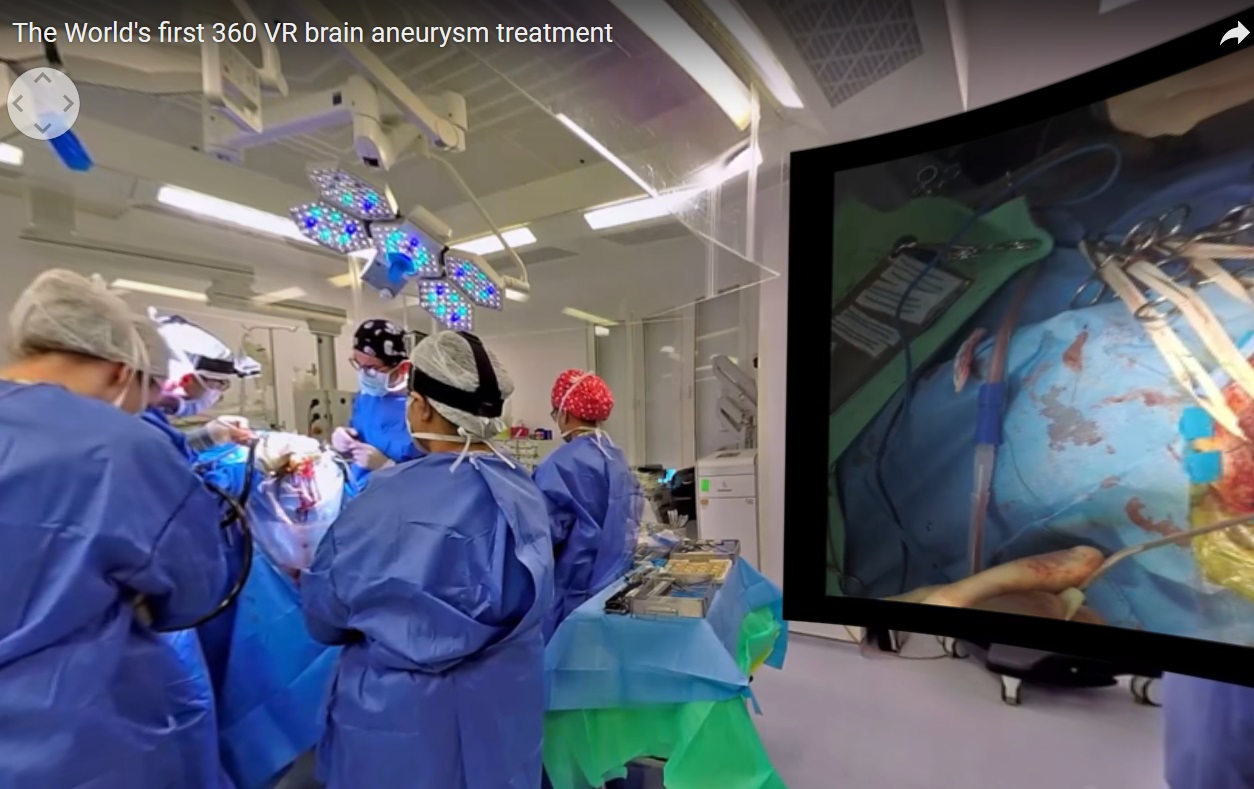Neurosurgery goes virtual with online patient operations

London brain surgeons have launched online the first ever 360 virtual reality film showing a patient undergoing surgery to treat life-threatening brain aneurysms.
Mr Alex Alamri, Mr Chris Uff and the neurosurgical team at The Royal London Hospital have published the VR film as the first in a series of operations, part of their project 'Brainbook', giving rare insight into the reality of neurosurgery.
The films can be accessed through the team’s Youtube and Twitter account @realbrainbook which saw almost 1,000 followers within its launch month, gaining positive feedback from students, patients and healthcare professionals. The neurosurgical team will also take to Twitter to discuss the videos and answer questions, with blog articles complementing the films.
Working with FundamentalVR, specialists in VR simulation and surgery training, an array of 360 HD cameras were combined with head-mounted HD cameras uniquely capturing behind-the-scenes surgery from the point of view of both the patient and surgeon.
Viewers initially experience being wheeled into the operating theatre as if they are the patient, before being immersed as part of the medical team seeing through the eyes of the surgeon. As not all films will be in Virtual Reality, a 360 camera rig gives unparalleled access to explore the theatre, allowing Brainbook followers to see the intricate anatomy of the brain and the delicate nature of surgery.
Each key stage of the procedure is narrated by a consultant neurosurgeon and illustrated graphics provide insight into the clinical decision making.
Mr Alex Alamri, Neurosurgery Registrar at Barts Health NHS Trust explained: “I hope that Brainbook will demystify neurosurgery, making it accessible by inviting people to explore our operating theatres and ask questions about what they see. We want to help people get up close to experience what really goes on during operations.”
Chris Scattergood co founder of Fundamental VR said: “For us, recording the entire procedure in VR enables us to start the process of recreating the surgery in a VR simulation, one where trainee surgeons can practice the key stages of the procedure in a safe virtual operating room, and actually feel in their hands the textures of all of the different tissue types using our FeelReal VR solution.
We are also developing rapid “scan to VR” technologies, to enable actual patient rehearsal, so that these talented surgeons can practice on an actual case in full Virtual reality with our FeelReal technology before the patient enters the operating theatre, constantly improving patient outcomes.”
Mr Alamri added: "It would be great if we help inspire more junior doctors as well as young people considering careers in health professions. Of course, we couldn’t do this without the fantastic support of our patients to whom we are incredibly grateful."
The first video is published in September, during Brain Aneurysm Awareness Month, showing the clipping of brain aneurysms (a bulging, weak area in the wall of an artery). Research from the Brain Aneurysm Foundation shows a brain aneurysm ruptures every 18 minutes, proving fatal in almost 40 per cent of cases.
The first of the films can be viewed on any Virtual Reality device such as Google cardboard, and will also work via Youtube on a smartphone, tablet or computer. Visit www.realbrainbook.co.uk
